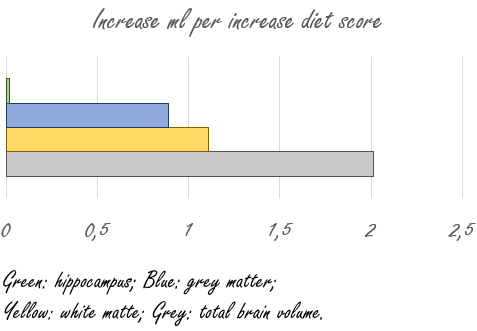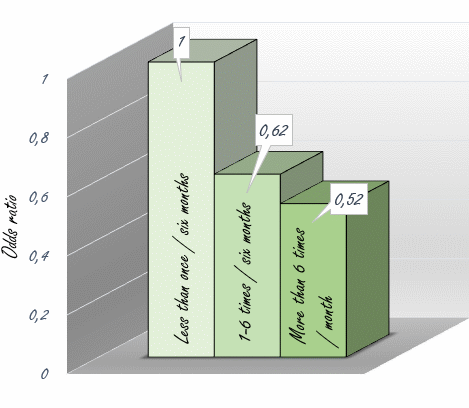|
Frequent contact with friends and family protects against dementia
There is more plaque in the brains of lonely people than in people with many social contacts, we wrote in 2016. If you know this, the scope of the study of psychiatrists at University College London is not at all so strange. The British discovered in an epidemiological study that healthy sixties who have a lot of contact with friends and family members are less likely to suffer from dementia later in life than lonely peers.
Study
The researchers followed 10,228 study participants from 1985 to 2017. During this period they asked the study participants 6 times about their social contacts with friends and family members. From 1997, the researchers also determined the cognitive abilities of the study participants.
Results
When the British brushed away the effects of factors such as education, income, marriage, and work, they discovered that people in their sixties who were in frequent contact with friends and relatives were 12 percent less likely to become demented later in their lives than those in their 60s few friends or relatives for a few months.
The psychiatrists found the same trends in other age groups in their fifties and seventies, but those effects were not statistically significant.
Click on the figure for a larger version.

Mechanism
"People who are socially engaged are exercising cognitive skills such as memory and language, which may help them to develop cognitive reserve”,
explains research leader Gill Livingston in a press release.. [sciencedaily.com August 2, 2019] "While it may not stop their brains from changing, cognitive reserve could help people cope better with the effects of age and delay any symptoms of dementia."
"Spending more time with friends could also be good for mental wellbeing, and may correlate with being physically active, both of which can also reduce the risk of developing dementia."
Conclusion
"Dementia is a major global health challenge, with one million people expected to have dementia in the UK by 2021, but we also know that one in three cases are potentially preventable", lead author Andrew Sommerlad concludes.
"Here we've found that social contact, in middle age and late life, appears to lower the risk of dementia. This finding could feed into strategies to reduce everyone's risk of developing dementia, adding yet another reason to promote connected communities and find ways to reduce isolation and loneliness."
Source:
PLoS Med. 2019 Aug 2;16(8):e1002862.
More:
Older than 60? Supplementation with fish oil, Ginkgo and B vitamins protects your brain 12.01.2019
Ketogenic diet may help prevent dementia 23.10.2018
Little bit of physical activity protects the brain against hereditary form of Alzheimer's 07.10.2018
Physical activity enables the brain to repair itself and rejuvenate itself 08.06.2018
Archives:
Psychology
Dementia
|





